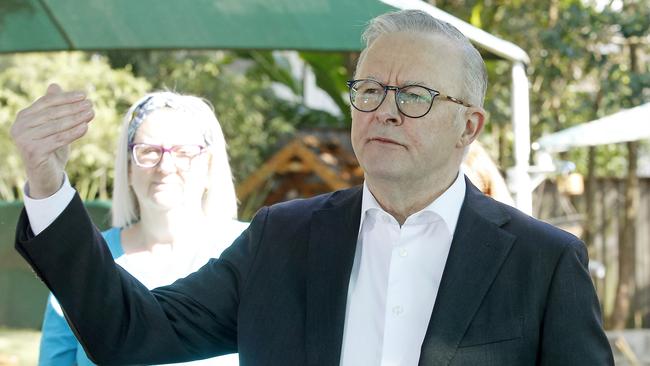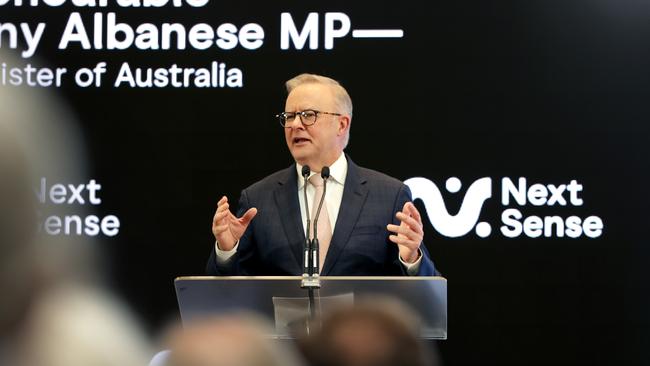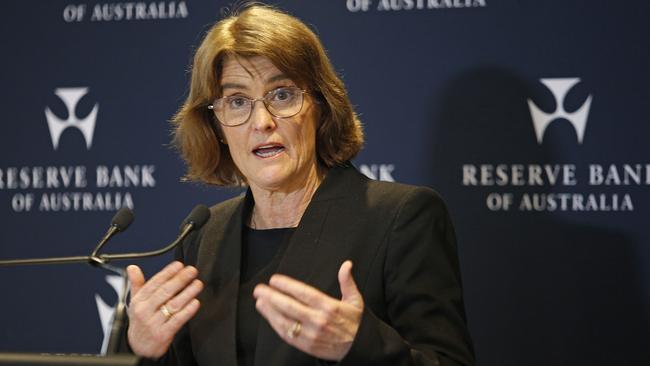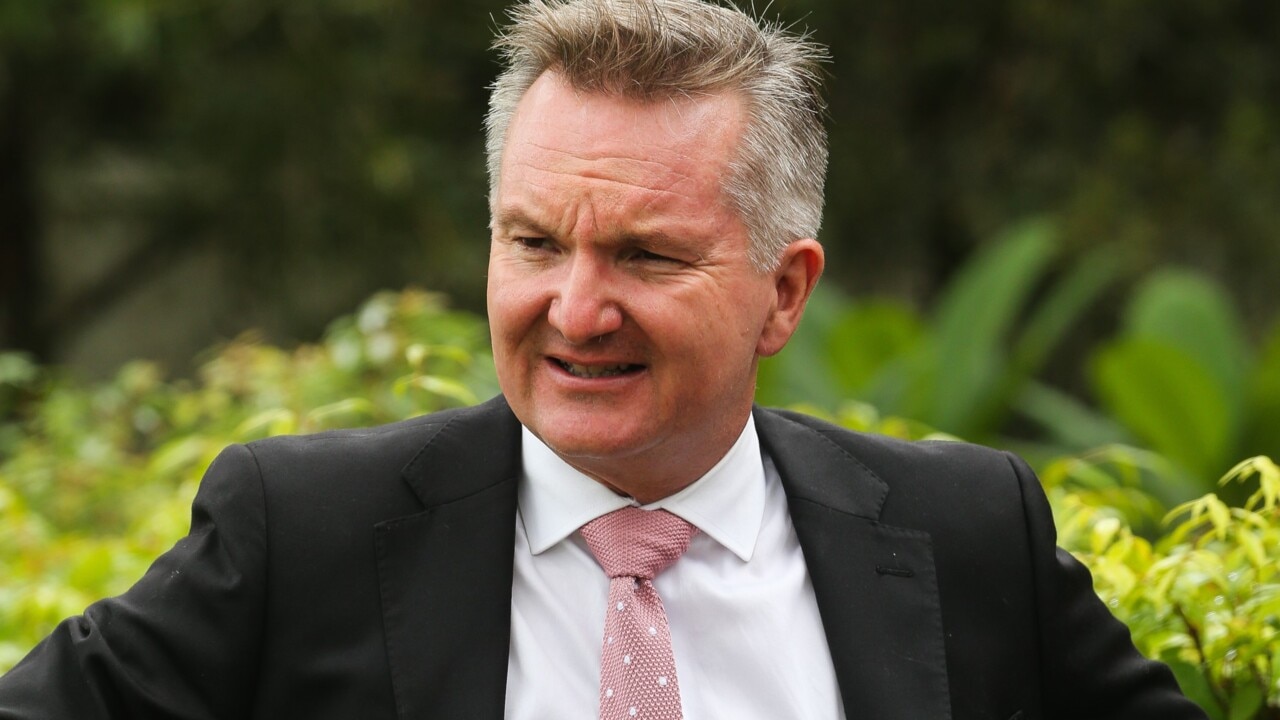
The Reality versus Rhetoric divide (RvR™) now straddles its interpretation of what’s going on with electricity prices, national security, foreign policy, interest rates and its Future Made in Australia plan.
Let’s review the RvR index (RvRi™).
Recall Labor came to power promising to cut electricity prices by next year, measured against a 2021 baseline. It is explicit in the media statement issued for the launch of the “Powering Australia” plan on December 3, 2021.
“It will cut power bills for families and businesses by $275 a year for homes (sic) by 2025, compared to today,” the statement says.
Yes this is an awfully written sentence but the meaning is clear. As has been noted here before, the guarantee was self-evidently a fantasy at the time it was made.
The Albanese government is now giving every household $300 to – partly – offset the stonking increase in retail power prices. It should be clear to everyone but government ministers that moving from a price cut to a bill subsidy is the polar opposite of what was promised.
You could forgive this misadventure if the original delusion was ever conceded. But no. Although the $275 saving claim is as stone motherless dead as a Monty Python parrot, government ministers still refuse to admit it.

Then there is the national security RvR gap. The government says we are living in the most dire times since World War II, with less than a decade to arm for battle with an, often unnamed, aggressor. The response is to push the retooling of defence over the horizon while claiming the sloth sloping towards readiness is, in fact, a panther.
The defence of Australia is being outsourced to the US, as it greatly expands its combat forces across our continent’s north. When the epoch-embracing Future Made in Australia plan was launched its shortcomings were, unexpectedly, verbally strafed by the Labor-appointed Productivity Commissioner.
Danielle Wood was quizzed about the plan by Insiders host David Speers who road tested the government line that taxpayer money was needed to help get infant green technology off the ground.
“Your infants grow up,” Wood said. “They turn into very hungry teenagers and it’s kind of hard to turn off the tap.”
The sad truth is that our good friend China is going to drown that infant in the baby bath. Beijing is flooding the world with cheap solar panels ensuring that, even if we could one day match it in quality, we will never match it in price.
Which brings us to the foreign policy RvR gap. Labor has apparently rebalanced the relationship with China by ending the unfortunate era of truth telling. This has gone so smashingly well that China is killing off our nickel industry by financing a low-cost alternative source of the mineral in Indonesia. Expect other minerals essential to becoming a “green energy superpower” to receive the same treatment from the looming Death Star that is our best trading buddy.
The RvR index also records that part of Labor’s response to such ruthlessly targeted friendly fire is to review the funding of the Australian Strategic Policy Institute. For those unfamiliar with this organisation, it’s enough to know that the Chinese Communist Party hates it. The institute made it on to the list of 14 grievances Beijing had with Canberra, which was handed to Nine journalist Jonathan Kearsley by a Chinese diplomat in late 2020.
If ASPI’s funding is cut in the wake of this review, expect government ministers to scoff at the idea it is a sop to the CCP. But that is precisely how it will be read in Beijing and Washington. Frankly, watching this government manage the relationship with China is like watching a toddler crossing a freeway.
But the new No. 1 on the RvRi is interest rates and inflation. Here the Reserve Bank statement on monetary policy all but shouts that state and federal government spending is inflationary and that means rates will have to stay higher for longer.

RBA governor Michele Bullock summed up what was happening in the economy in layman’s terms in a press conference on Tuesday.
“The amount of goods and services that households, businesses and government want to buy and need (is) more than the amount that the economy can sustainably provide,” Bullock said.
RBA assistant governor Sarah Hunter told a parliamentary committee: “We just think the economy is running a little bit hotter than we saw previously.”
The Treasurer, Jim Chalmers, sees an entirely different world. He told the ABC it was “hard to sustain an argument that the economy is running too hot”.
The Albanese government’s RvR gap with the RBA is as discordant as a teenage punk band. So who do you trust, the central bank or the party seeking re-election?
There is nothing wrong with having an imaginary giant white rabbit as your special friend. Such things can be comforting. But demanding everybody else believe in Harvey is a stretch. And this is not one rabbit, this is a colony.
That said, running a line long after it is proven wrong, or meaningless, does require a certain chutzpah. Those with long memories will know the Zen master of this art form is Chris Bowen.

In the era of the Rudd government, a young Bowen burst into public consciousness as assistant treasurer. He announced himself as the champion of two grand ideas: FuelWatch and Grocery Watch, which morphed into Grocery Choice. In an eerie taste of the future, both were sold as weapons deployed to cut the cost of living.
Both were less than they appeared, no more than glorified consumer websites. Both died ingloriously, one killed in the Senate the other euthanised by an incoming minister in a reshuffle.
This was not taken as a sign of failure by Bowen’s party; he was promoted to cabinet. Later, as the Gillard government’s immigration minister, his Malaysia Solution to stop the tide of asylum seeker boats was shipwrecked in the High Court. As treasurer in the reborn Rudd government, Bowen delivered a budget in May 2013. Three months later, the deficits across the budget forward estimates blew out by $33bn.
As shadow treasurer, Bowen devised a Labor comeback in 2019 that rested on curtailing negative gearing and capital gains tax breaks and a crackdown on franking credit cash refunds. In response to criticism of his financial prescription he famously declared: “If you don’t like our policies, don’t vote for us.”
Proving Bowen’s power to sway the masses, Scott Morrison chalked up his miracle victory.
Now Bowen pledges to make the electricity system greener and cheaper. What could possibly go wrong? Mere physics will not pose a problem to a minister who long ago mastered the art of falling up.
Editor’s note: Chris Uhlmann is married to former Labor MP Gai Brodtmann who is the chair of the Australian Strategic Policy Institute council.






There is something increasingly discordant about the Albanese government, as the gap between the world as it is and the one it imagines grows.